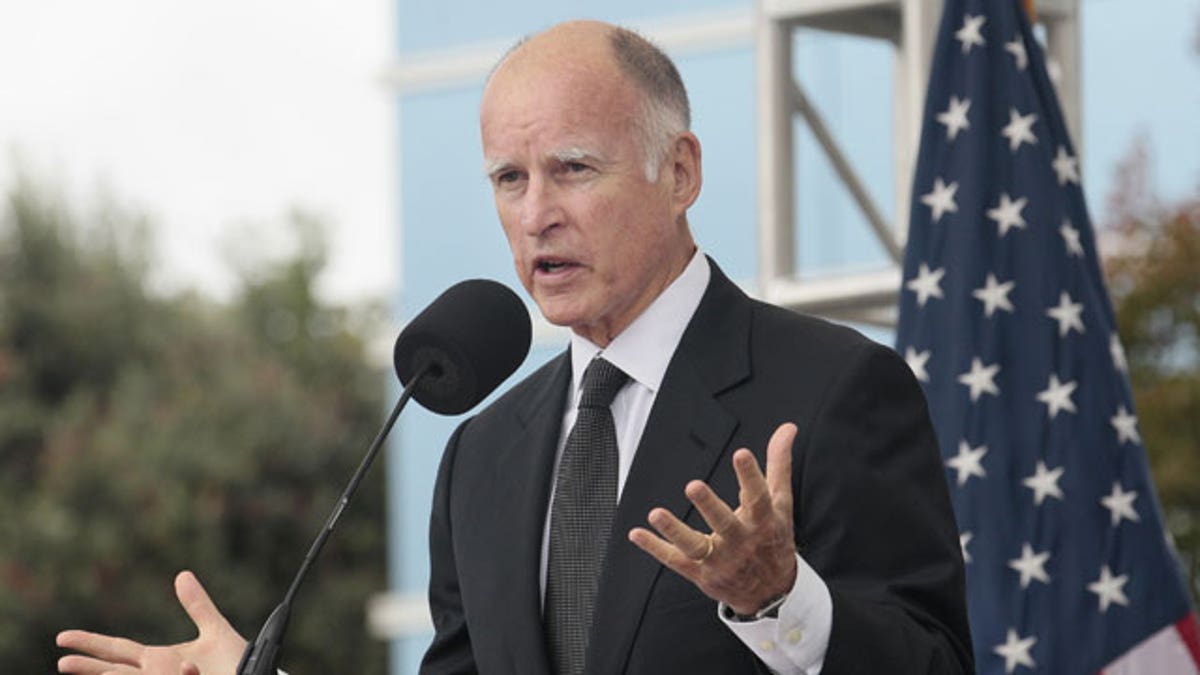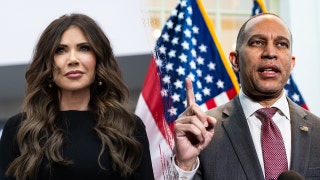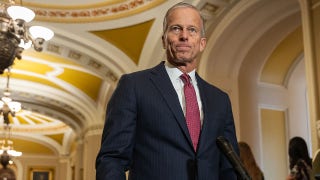
October 10, 2011: Gov. Jerry Brown speaks at SunEdison in Belmont, Calif. (AP)
SACRAMENTO, Calif. – Gov. Jerry Brown unveiled details of his pension proposal Thursday that seeks to move new California state workers to a hybrid system where guaranteed benefits are combined with a 401(k)-style plan and would raise the retirement age from 55 to 67 for civil workers, as union leaders lined up to oppose his plans.
The Democratic governor's plan calls for trimming generous public employee pension benefits that have saddled California and local governments with billions of dollars in unfunded liabilities. He is asking the Legislature to put a measure on a statewide ballot so the changes would impact both state and local government employees.
Brown's plan deals mostly with new state hires by raising the retirement age from 55 to 67 for civil workers. Public safety officials who can now retire as young as 50 would have to work longer, but the calculation would be based on their ability to perform.
The governor also wants current and new hires to start paying a greater share of pension costs; some contribute nothing toward their benefits. By shifting to a mandatory "hybrid" system, employees with at least 30 years of service would replace about 75 percent of an employee's salary through retirement funds and Social Security, according to the draft.
"I tried to do something that's legal, that will save a hell of a lot of money going forward and that I think is fair," Brown said at a news conference Thursday.
Brown said he went as far in scaling back benefits as he believes is legally possible, blaming lawmakers over the decades for gradually increasing benefits and approving "very generous and unaffordable ground rules that then the collective bargaining process took advantage of."
Public employee unions already were lining up to oppose Brown's proposal, which the administration estimates would save about $900 million annually.
Dave Low, chairman of Californians for Retirement Security, said the governor's proposed changes would undermine retirement security for public employees who have already agreed to "hundreds of millions of dollars in pension concessions at the state and local level."
"Workers across California have negotiated contributing more to their pensions and two-tier benefits," Low said in a written statement. "We simply cannot stand for imposing additional retirement rollbacks on millions of workers without bargaining."
Brown's plan would require approval from the Legislature, where union-allied Democrats are likely to balk at some of the significant rollbacks, and where Brown failed to win consensus on pensions with Republicans last spring.
Sen. Mimi Walters, R-Lake Forest, a member of a newly formed Senate-Assembly committee on pensions, said Brown was "moving in the right direction" by recommending a mandatory hybrid system and raising the retirement age.
"Until we actually review the plan and can crunch the numbers, I will remain cautiously optimistic," Walters said in a statement.
Several parts of the plan would require voter approval, including extending many of its provisions to employees at California's public university systems, and Brown's goal to add two independent, public members to the board of the California Public Employee Retirement System, the nation's biggest public pension fund.
The board has come under scrutiny during an influence-peddling investigation by the attorney general's office alleging fraud and kickbacks through middlemen known as placement agents who seek investment business.
The plan also would end so-called pension "spiking" that lets employees boost their payouts by including overtime and other benefits, and end the practice of buying additional service credits to inflate pension checks.












































